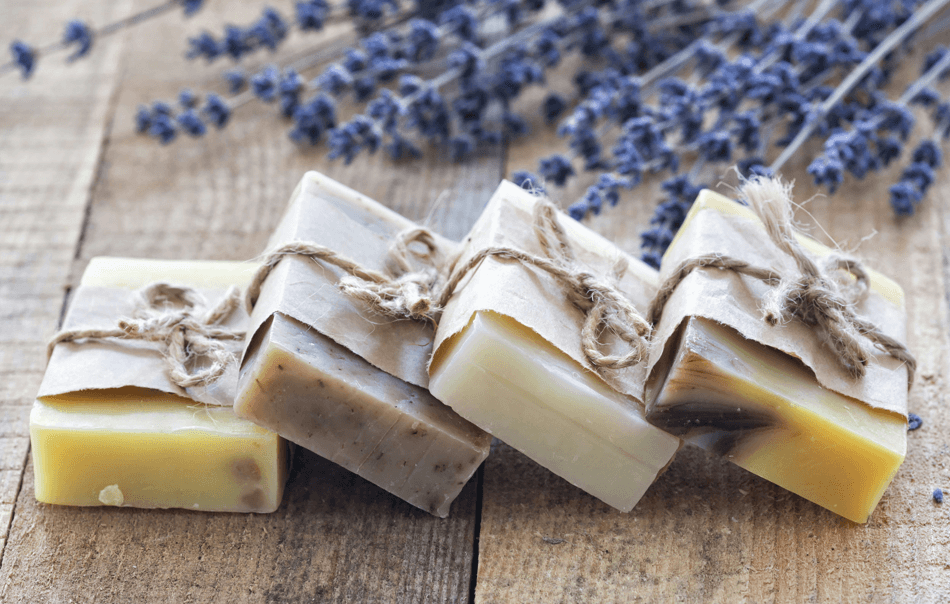Does Hyaluronic Acid Darken Skin? Unveiling the Truth Behind the Myths

Key Takeaways:
- Hyaluronic acid is known for its hydrating properties and does not inherently darken the skin.
- It is essential to use hyaluronic acid correctly, considering skin type and potential interactions with other products.
- Understanding the science behind hyaluronic acid can help dispel myths and highlight its benefits for maintaining a radiant complexion.
Hyaluronic acid has become a buzzword in the beauty industry, celebrated for its amazing moisturizing and anti-aging qualities. But with its popularity comes the question: does hyaluronic acid darken skin?
This article delves into the science of hyaluronic acid, its effects on different skin types, and how it fits into your skincare routine.
Understanding Hyaluronic Acid and Skin Pigmentation
Hyaluronic acid is a natural substance found in the human body, and plays an essential role in preserving joint lubrication and skin hydration. It retains moisture and provides intensive hydration to the skin, which is why it's a staple in many cosmetic products.
However, the concern about skin darkening arises from misconceptions about how hyaluronic acid works with skin pigmentation.
The Role of Hyaluronic Acid in Skincare
Incorporating hyaluronic acid into your skincare routine is beneficial for keeping the skin moisturized and enhancing its youthful appearance. It is a safe and valuable component in various skincare products, from topical creams to serums, due to its moisture retention and hydrating properties.

Hyaluronic Acid and Skin Types
Skin types vary, and so does the reaction to skincare products. For acne-prone skin or sensitive skin, hyaluronic acid hydrates without adding oil, making it an excellent choice. It's also gentle enough for those with irritated skin, as it provides essential hydration without causing further skin issues.
The Myth of Hyaluronic Acid Darkening Skin
The myth that hyaluronic acid can make the skin darker is not supported by skin science. Instead, hyaluronic acid is known for its skin lightening properties, balancing skin tone, and reducing the appearance of dark spots and dark circles.
Correct Application of Hyaluronic Acid
To reap the benefits of hyaluronic acid, it's crucial to apply it correctly. Applying it to damp skin helps it to retain moisture more effectively. This method ensures that the skin stays hydrated without any adverse effects, such as temporary redness or irritation.
Hyaluronic Acid and Sun Exposure
Sun exposure can lead to skin darkening, and while hyaluronic acid itself does not darken the skin, it is essential to use sunscreen to protect the skin from UV rays.
Hyaluronic acid can help repair sun-damaged skin, but it does not replace the need for sun protection.
Combining Hyaluronic Acid with Other Ingredients
When combining hyaluronic acid with other ingredients like vitamin C, it's important to understand how they work together. Vitamin C is known for its skin brightening effects, and when used with hyaluronic acid, it can enhance hydration and promote a more radiant complexion.
Hyaluronic Acid for Dehydrated Skin
Dehydrated skin can benefit significantly from hyaluronic acid's hydrating properties. It helps to enhance the skin's moisture levels, providing relief from dryness and promoting a healthier, glowing skin.

Hyaluronic Acid and Collagen Production
Collagen production is vital for maintaining the skin's elasticity and firmness. Hyaluronic acid supports collagen production, contributing to a more youthful appearance and reducing the signs of aging.
Hyaluronic Acid's Efficacy for Acne-Prone Skin
Hyaluronic acid is often touted for its hydrating properties, but its benefits for acne-prone skin are equally noteworthy.
Due to its ability to retain moisture, hyaluronic acid is good for maintaining hydrated skin, which is crucial for all skin types, including oily and acne-prone skin.
Proper hydration can prevent the overproduction of oil, a common cause of acne. Moreover, hyaluronic acid's molecular structure allows it to penetrate the skin's surface, providing moisture without clogging pores, which is essential for those with acne-prone skin.
In addition to its hydrating effects, hyaluronic acid serum formulations often contain anti-inflammatory properties that can soothe irritated skin and reduce redness associated with acne. Its gentle nature makes it an ideal component in skincare routines aimed at managing acne.
Because hyaluronic acid is found naturally in the human body, specifically within connective tissues, it is generally well-tolerated by most skin types, reducing the likelihood of adverse reactions that can exacerbate acne symptoms.
Moreover, hyaluronic acid's compatibility with other acne treatments enhances its appeal. It can be seamlessly integrated into a skincare regimen that includes salicylic acid or benzoyl peroxide, ingredients known for their effectiveness against acne.
This integration allows for a multifaceted approach to acne management, where hyaluronic acid provides the necessary hydration to counteract the drying effects often associated with acne medications, thereby promoting a balanced and clear complexion.

Exploring the Anti-Inflammatory and Anti-Aging Synergy of Hyaluronic Acid
Hyaluronic acid's anti-inflammatory properties are a cornerstone of its multifunctional appeal in skincare. Inflammation is a common precursor to skin aging, and by mitigating inflammatory responses, hyaluronic acid helps in preserving the skin's youthful appearance.
Its soothing effect is particularly beneficial for those with sensitive or dry skin, as it can alleviate redness and discomfort associated with these conditions, promoting a more even skin tone and texture.
The anti-aging qualities of hyaluronic acid are not just limited to its anti-inflammatory action. It also plays a pivotal role in skin's elasticity and firmness by binding to water molecules, which helps to plump up the skin and smooth out fine lines and wrinkles.
This dual action of calming inflammation and providing a filling effect makes hyaluronic acid a prized ingredient in the formulation of anti-aging products, offering a comprehensive approach to maintaining skin's health and youthful vigor.
The Intersection of Hyaluronic Acid and Skin Inflammation
The anti-inflammatory properties of hyaluronic acid are a key aspect of its multifaceted role in skincare. Inflammation is a common response to various skin stressors and can lead to a range of issues, from transient redness to more persistent conditions like eczema or rosacea.
Hyaluronic acid helps to soothe the skin by calming inflammation and reducing redness, making it an excellent ingredient for sensitive or reactive skin types.
In addition to its calming effects, hyaluronic acid's anti-inflammatory properties contribute to its anti-aging qualities. Chronic inflammation can accelerate the aging process by breaking down collagen and elastin, the proteins responsible for skin's firmness and elasticity.
By mitigating inflammation, hyaluronic acid helps preserve these vital proteins, thereby maintaining the skin's youthful structure and resilience. This dual action reinforces hyaluronic acid's reputation as a cornerstone of anti-aging skincare regimens.
Hyaluronic Acid and Skin Disorders
For those with skin disorders, hyaluronic acid can be a beneficial addition to their skincare regimen. It's important to consult with a dermatologist to ensure that hyaluronic acid fits into the treatment plan without causing any adverse reactions.
Hyaluronic Acid for a Brighter Skin
Hyaluronic acid contributes to brighter skin by keeping the skin hydrated and reducing the appearance of dark patches. Its ability to retain moisture and promote an even skin tone is why it's a favorite in the skincare world.
Adding Hyaluronic Acid to Your Skincare Routine
To add hyaluronic acid to your skincare routine, look for serums or creams that list it as a key ingredient. It's a versatile product that can be used both in the morning and at night to keep the skin moisturized and healthy.
The Connection Between Hyaluronic Acid and Hormonal Changes
Hormonal changes can affect the skin in various ways, including skin pigmentation. Hyaluronic acid helps in balancing skin tone, but it's important to address the underlying hormonal issues for a more comprehensive approach to skin care.
Can Taking Hyaluronic Acid Orally Help Your Skin?
Taking hyaluronic acid supplements can contribute to skin hydration from the inside out. However, it's essential to consult with a healthcare provider before starting any new supplement regimen.
Potential Side Effects of Hyaluronic Acid
While hyaluronic acid is generally safe, there is a possibility of a severe allergic reaction in rare cases. It's crucial to perform a patch test before fully incorporating a new hyaluronic acid product into your skincare routine.
Summary
Hyaluronic acid is a powerful hydrator that does not cause skin darkening. It is a natural substance that supports skin hydration, collagen production, and has anti-inflammatory properties.
When used correctly, hyaluronic acid can be a beneficial addition to any skincare routine, promoting a radiant complexion and overall skin health.
It's important to apply it to damp skin, combine it wisely with other ingredients, and always use sunscreen to protect against sun-induced skin darkening.
FAQ Section
Q: Can hyaluronic acid cause my skin to become darker?
No, hyaluronic acid does not cause skin darkening. It is known for its hydrating and skin lightening properties, which can actually help to reduce the appearance of dark spots and even out skin tone.
Q: Is hyaluronic acid good for all skin types?
Yes, hyaluronic acid is suitable for all skin types, including sensitive and acne-prone skin. It is a gentle hydrator that provides moisture without adding oil, making it ideal for a variety of skin conditions.
Q: How should I incorporate hyaluronic acid into my skincare routine?
You can incorporate hyaluronic acid into your skincare routine by using products that contain it, such as serums or moisturizers. Apply it to damp skin to enhance its moisture-retaining properties, and always follow up with sunscreen during the day to protect your skin from UV rays.





